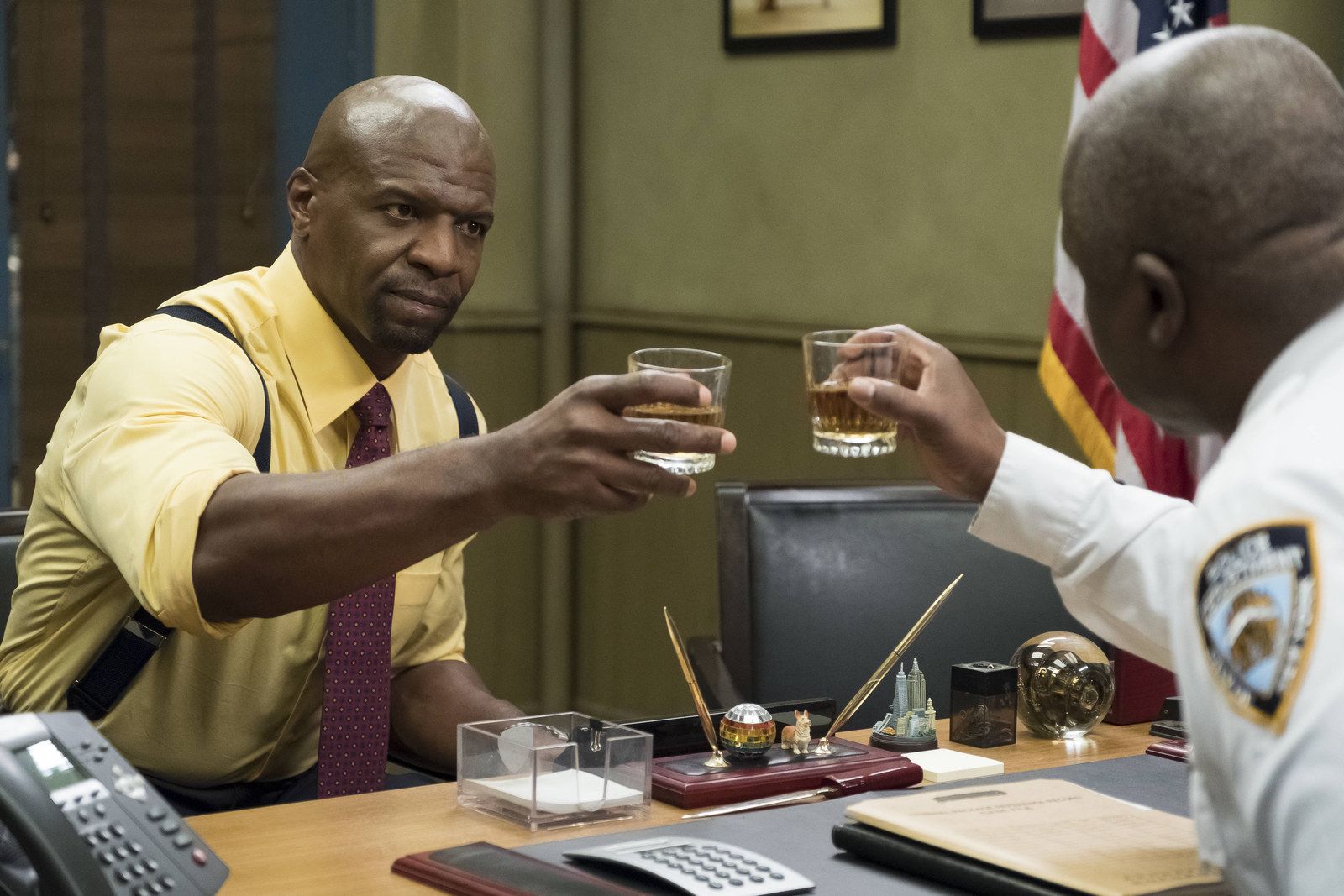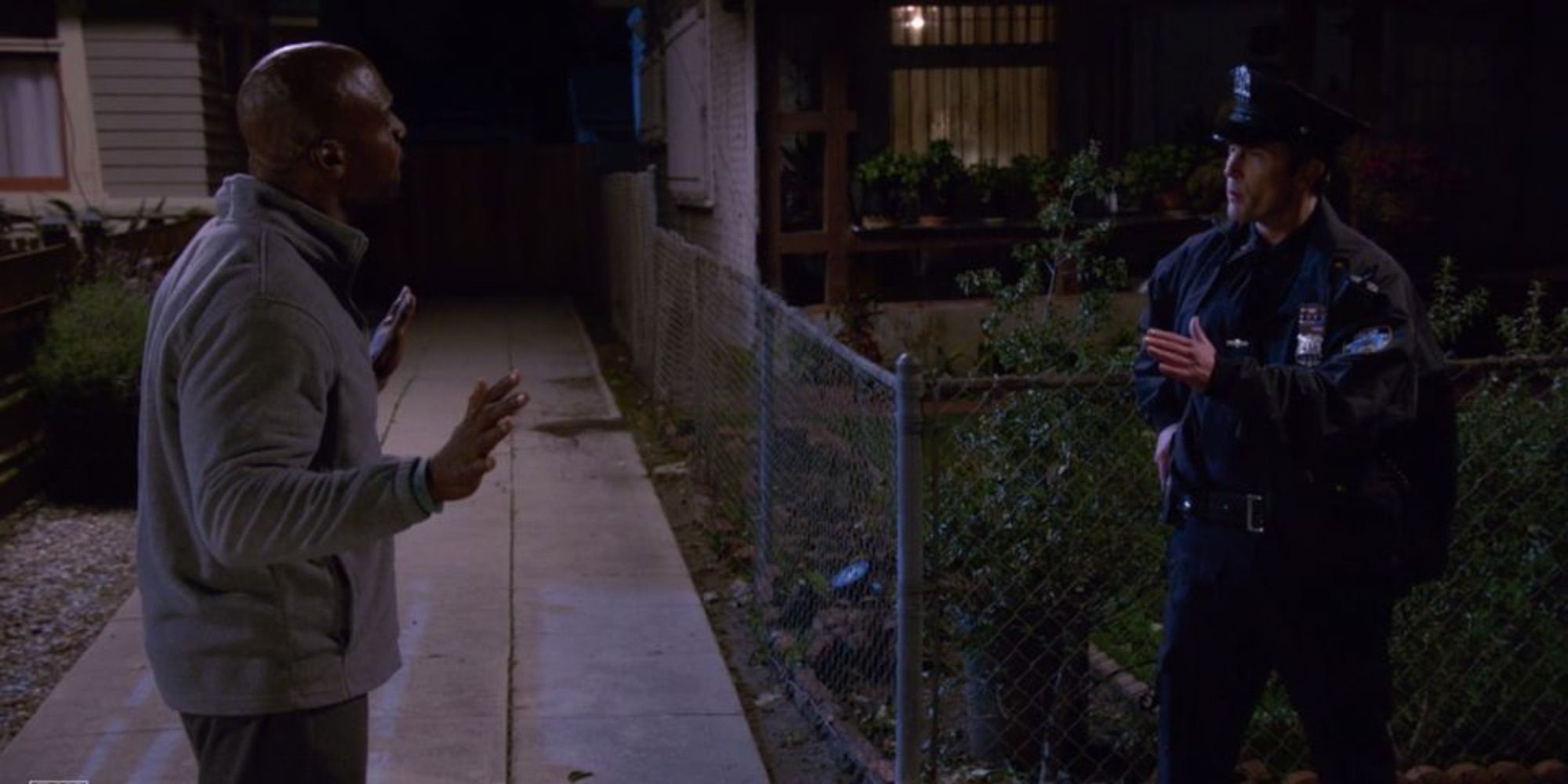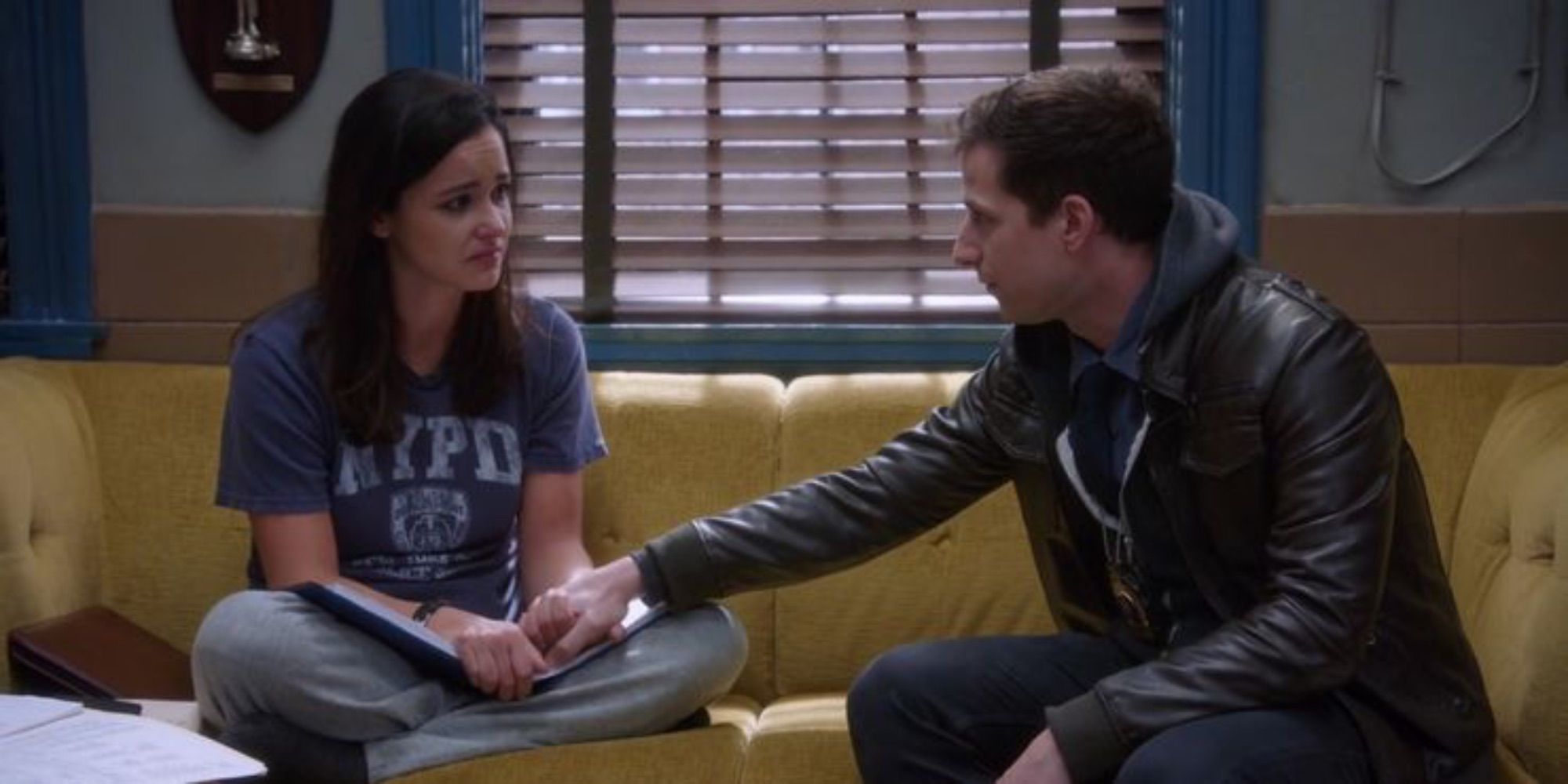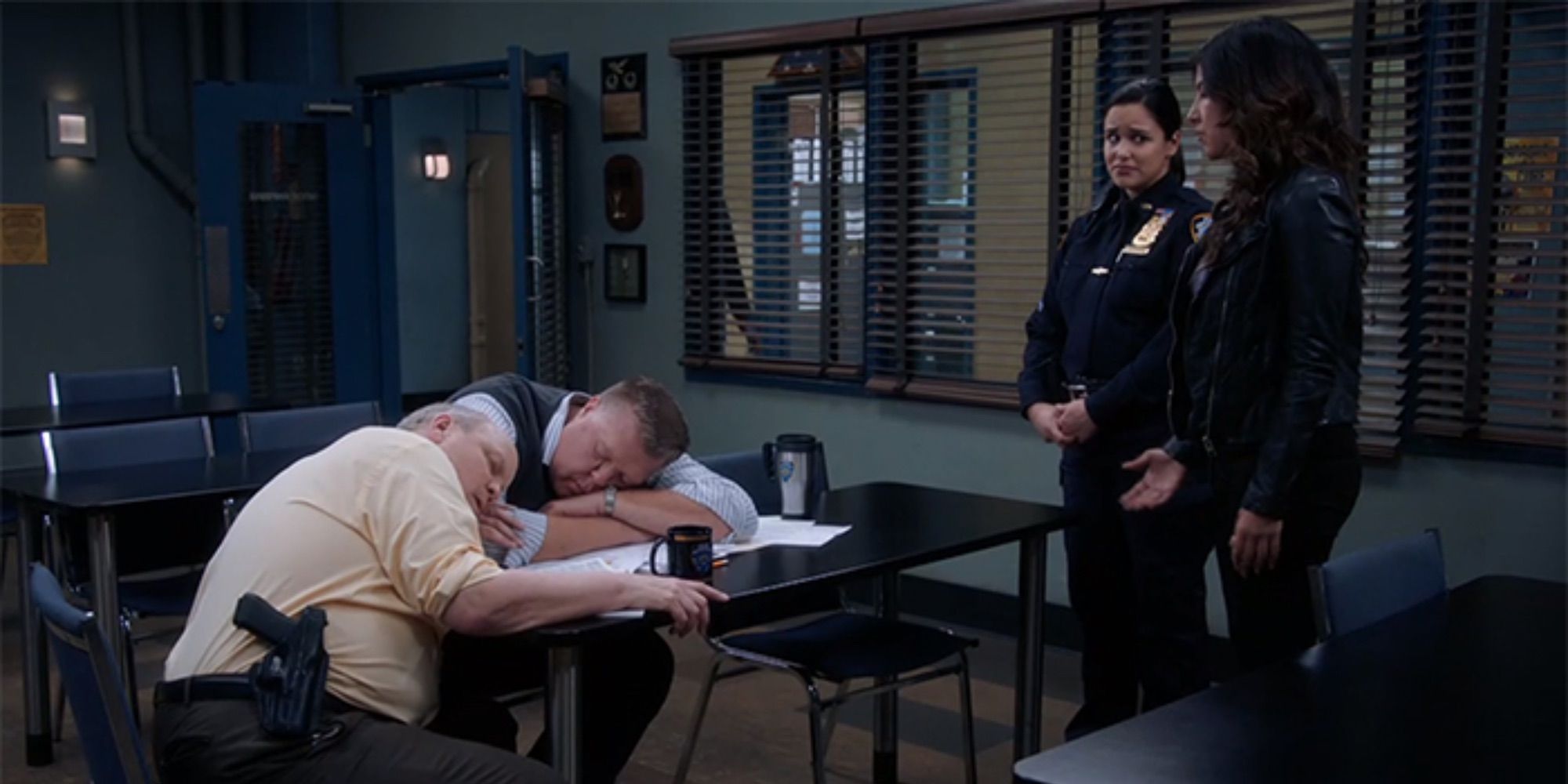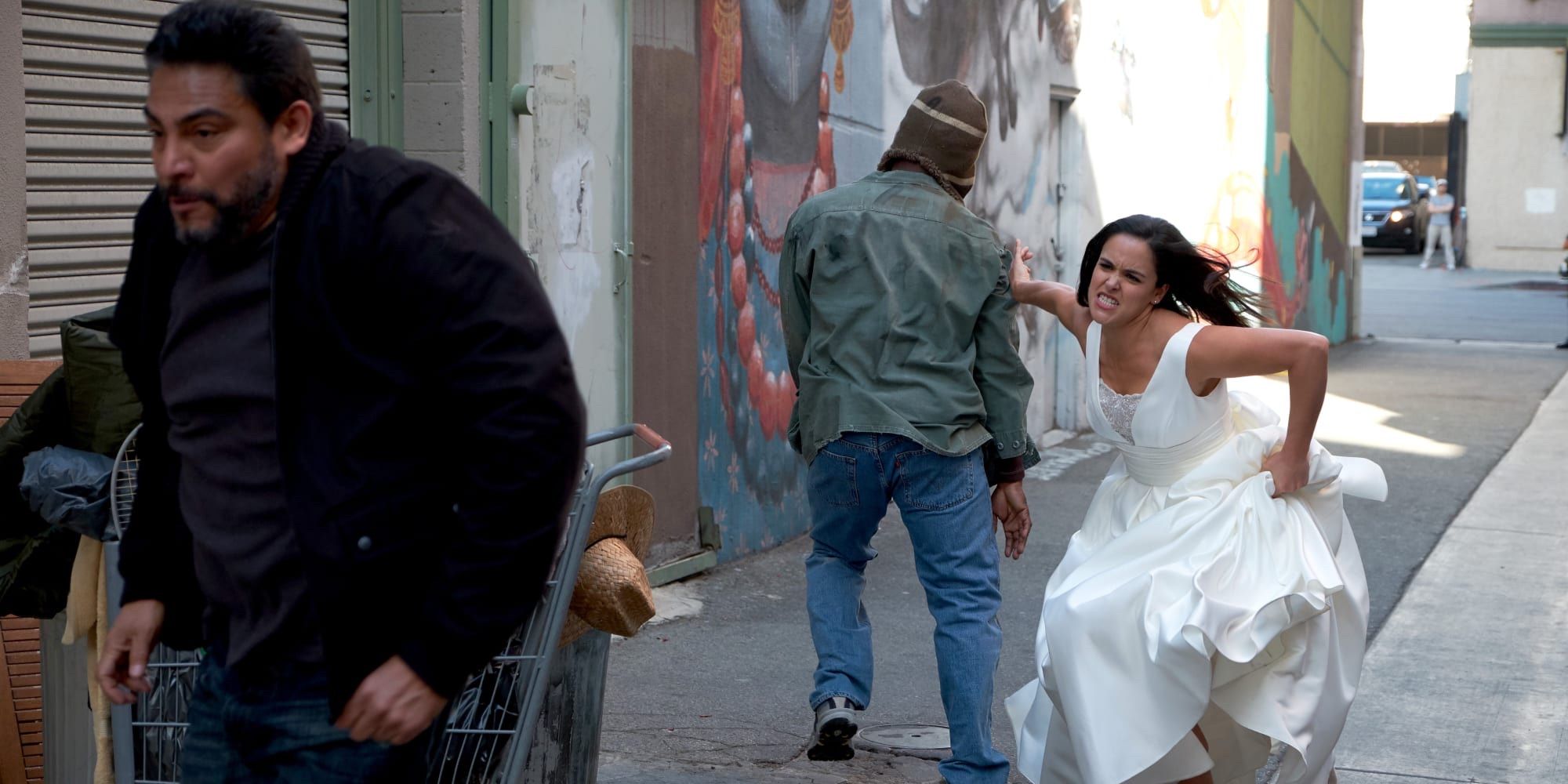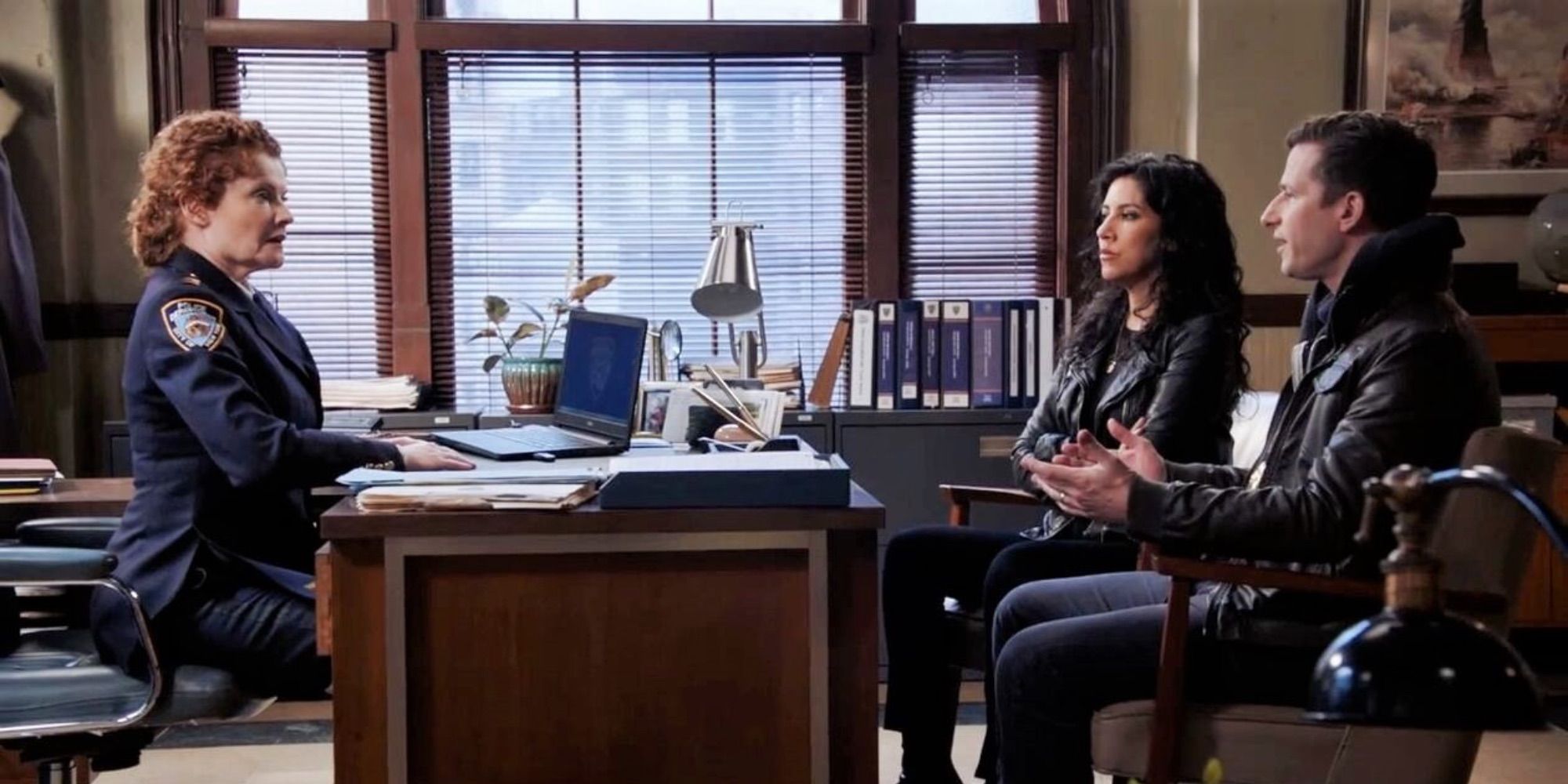Throughout its many seasons, Brooklyn 99 stood out as unique due to its incorporated comedy through the light-hearted nature of the characters and suspense through the intriguing police cases the squad would encounter, but also stood as a testament to how the group grappled with real-life issues that are often ignored in TV comedies.
As the show was successful in striking a balance between comedy and addressing hard-hitting societal issues and stood out as groundbreaking for how it addressed complex social issues, including sexism, homophobia, corruption, and racial profiling. As the squad faced many real issues, there were times that despite their best efforts, the system failed to support the dedicated efforts of these frontline officers.
Season 4, Episode 16 - "Moo Moo"
In this episode, Terry Jeffords faces racial discrimination when an officer nearly arrests him for roaming around in his neighborhood at night. Although he is released after showing a police badge, Terry’s experience demonstrates the prevalence of racial profiling. When Terry expresses interest in filing a civilian complaint, Captain Holt doesn’t support him, believing it would be better to fix the system on the inside. Although Terry’s complaint is eventually filed, resulting in the officer being reprimanded, it also came at the cost of losing a job he was applying for.
This episode not only demonstrated the prevalence of racism, but also the discriminatory attitudes prevalent in what is considered an inclusive community and a lack of accountability within the system. What also stood out was Terry’s internal struggle with juggling the price of his complaint with the overall good it would come to.
Season 6, Episode 8 - "He Said, She Said"
Jake and Amy investigate a case of sexual assault, where a female worker, Keri defends herself against the advances of a male coworker, Seth. Amy encourages Keri to decline the money settlement which she believes she must take as Seth would escape retribution as it would be difficult to convict him on her word alone. Although Amy’s fixation on solving the case draws back to her personal experience, when her boss felt like he deserved something in return for her career, what stood out was the controversial debate between Amy and Rosa.
While Amy argues that his conviction would prevent a sexual predator from walking free and would further others to step out and share their own experiences, Rosa’s stance is that Keri’s career and future will be heavily affected by the pursuit of the case as she will have to through a public trial where sexual assault victims are often disregarded, humiliated, and stifled. Rosa believes that even if she wins, she loses something, marking one step forward, and two steps back. While this episode also highlights the daily contempt women experience, Rosa and Amy’s differing opinions highlight sexual assault through a multifaceted lens in which their respective realist and feminist arguments are for the same cause.
Season 7, Episode 10 - "Admiral Peralta"
While the episode centers on Jake and Amy’s gender reveal party as well as Jake’s strained relationship with his father, the supporting storyline addresses an important case of interest that is assigned to Hitchcock and Scully. Hitchcock and Scully failed to document the contact information of the witness of a burglary case victim.
Although Amy and Rosa view their negligence as incompetence, it is later revealed that the witness was an illegal immigrant and requested that his information not be given, for fear of being detained or deported if he was required to testify in court. This minor story arc addressed how undocumented people fear coming forward to either help frontline workers or become inclusive members of the community, ultimately making the world a less accountable place.
Season 5, Episode 18 - "Gray Star Mutual"
While the main storyline pertains to Charles’s food truck being destroyed in a fire as well as his subsequent claim to seek insurance money, the minor storyline relates to the prevalence of ingrained sexism and how it affects perception in the workplace. While Amy is excited about her wedding, she stifles her feelings of anticipation by placing a limited focus on things like trying wedding dresses as she doesn’t want to be seen as less or weak.
Amy’s demeanor demonstrates the prevalence of some inherent gender stereotypes. Although she has obtained a high-ranking position, she still believes that she must work much harder to maintain the respect of her peers as a woman of color. Although Brooklyn 99 has portrayed strong female characters, the inconsistencies between what is preached and practiced are also portrayed as characters like Amy and Rosa struggle to escape the deep-rooted patriarchy in a male-dominated field.
Season 8, Episode 1 - "The Good Ones"
While this episode has mixed perceptions among fans due to discontent over Rosa’s decision to leave the police force, it took a unique stance on the public perception of police, distrust in the system, and police brutality in light of George Floyd. Jake and Rosa take different stances on the problems in the system where Jake feels like he can have more of an impact by working as a good officer in the system whereas Rosa couldn’t ignore what she was a part of, believing she can help other victims on her own terms, acknowledging the public distrust in police officers.
Jake assists Rosa in a case of police brutality to prove he’s one of the good ones, believing Rosa resents him for working in a system that turns away from real cases of power abuse. Although Jake’s notion reflects how some conscientious officers are affected by distrust and seen as the enemy, Rosa argues that in the bigger picture, there are real people who are victims. She emphasizes the importance of recognizing and supporting them without trying to self-validate themselves, wanting to paint the picture of a hero.

